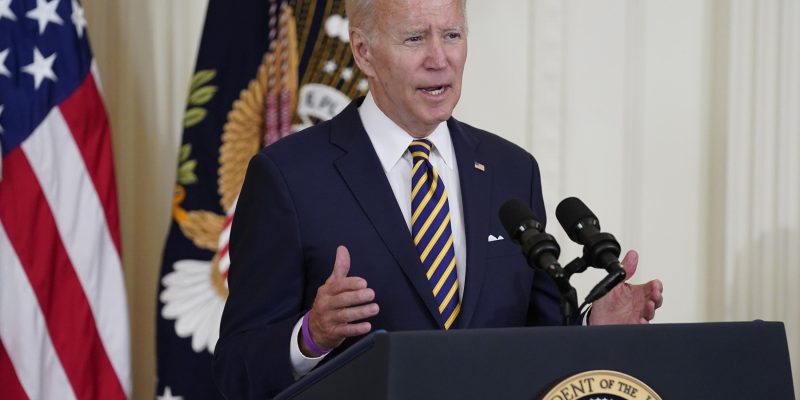A significant piece of American legislation known as the Inflation Reduction Act of 2022 (IRA) seeks to control inflation by cutting prescription medication costs, investing in domestic energy production, and encouraging renewable energy. On August 16, 2022, President Joe Biden signed it into law after the 117th United States Congress approved it. that is the US Politics Latest News.
What is Inflation Reduction Act?
Senators Chuck Schumer (D-NY) and Joe Manchin are the authors of the budget reconciliation measure (D-WV). The planned Build Back Better Act was the subject of talks that led to the creation of the law, which was drastically altered from the original version when Manchin voiced his opposition to it. The Build Back Better Act was amended with it, and the legislative text was used in its place.
The Inflation Reduction Act of 2022 will put a historic down payment on deficit reduction to combat inflation, invest in local manufacturing and energy production, and cut carbon emissions by almost 40% by 2030. The package will also prolong the expanded Affordable Care Act program for a another three years, through 2025, and allow Medicare to finally bargain for the cost of prescription drugs, according to US Politics Latest News.
- By allowing Medicare to negotiate drug prices, it will save seniors, people with disabilities, and the federal government billions of dollars. The law would save the federal government and Medicare beneficiaries billions of dollars by lowering the price of these prescriptions, which will result in lower out-of-pocket expenses for them. According to KFF estimates, 5 to 7 million beneficiaries nationwide take the kinds of expensive medications that would be negotiated and would result in lower cost share.
- Protecting Hundreds of Thousands of Connecticut Residents from Catastrophic Drug Costs by Setting a $2000 Limit on Part D Medicare Beneficiary Out-of-Pocket Costs Thousands of dollars in out-of-pocket prescription drug expenditures can now be incurred by Medicare beneficiaries with diseases including cancer, multiple sclerosis, and lung disease, and millions of Medicare beneficiaries struggle to pay for their drugs.
- The Reduction Act mandates that Part D plans provide better financial safeguards, which would be phased in starting in 2024 and would include a $2,000 out-of-pocket maximum in 2025. According to projections from the Kaiser Family Foundation, that will help around 19,000 Connecticut Medicare recipients each year who would otherwise incur out-of-pocket expenses beyond the maximum (KFF).
- By eliminating cost-sharing for vaccines under Part D, Connecticut’s Medicare beneficiaries would save tens of thousands of dollars. Patients obtaining vaccinations covered by Medicare Part D, such as the shingles vaccine, must spend a portion of the cost out of pocket, in contrast to Medicare Part B, which does not require any cost-sharing for vaccines like the flu shot.
- The law mandates that Medicare Part D enrollees receive immunizations at no cost to them beginning in 2023. In 2020, almost 57,000 Connecticut Medicare enrollees had a Part D vaccination; as these vaccinations become more reasonably priced, this figure is probably going to increase.
- Managing Medicare’s Rapid Prescription Drug Price Growth. If businesses raise prescription costs faster than the rate of inflation, the Act mandates that they give Medicare a rebate. Beginning in 2023, this will result in further savings for the federal government of billions of dollars as well as lower out-of-pocket expenses for Medicare members.
- Giving Extra Assistance Paying for Prescription Drugs for Low-Income Medicare Beneficiaries in Connecticut. The Act allows low-income beneficiaries with earnings up to 150% of poverty and modest assets to be eligible for full Part D Low-Income Subsidies, often known as Extra Help, starting in 2024. that is the US Politics Latest News
- Individuals with salaries between 135% and 150% of the poverty level now only receive limited assistance, which means they must still pay premiums and higher co-pays. KFF predicts that the extension of income eligibility for full Extra Help might benefit 400 Connecticut Medicare recipients who got partial Extra Help in 2020.
Also Read: Renewable Energy Jobs: Sharing Benefits With Workers






Comments